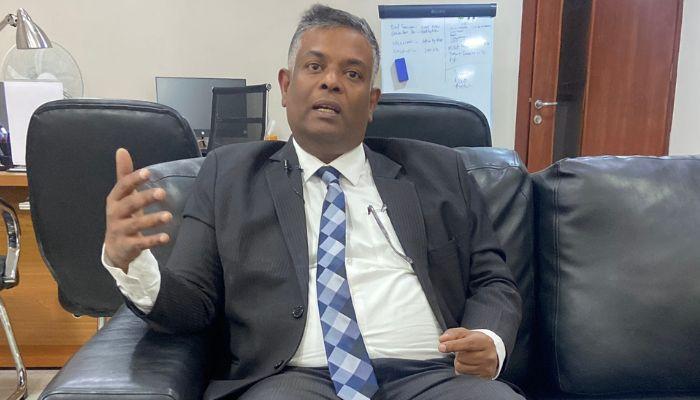The Indian High Commissioner to Nigeria, Mr. G. Balasubramanian, has expressed India’s desire to collaborate more closely with Nigeria’s vibrant performing arts scene, particularly in theatre.
The High Commissioner revealed this during a recent film screening event organized by the Kaduna International Film Festival (KADIFF) in collaboration with the Indian High Commission in Abuja. The event, which featured two India’s short film Rogan Josh and Kaka, the winner of the KADIFF 2024 Best Indigenous Language Feature Film Award was a testament to the growing cultural ties between the two nations.
Mr. Balasubramanian emphasized that the time has come to strengthen film and theatre collaborations between India and Nigeria. “We have a cultural exchange program between our ministries of culture, which covers all these aspects, and we hope it will foster an introduction to each other’s theatre cultures,” he said.
The High Commissioner pointed out that while dance troupes from Nigeria’s Ministry of Arts, Culture, and Creative Economy, as well as the National Council of Arts and Culture (NCAC), have performed in India as part of the cultural exchange program, there has yet to be a similar exchange from India’s end in terms of live performances.
In a clear expression of intent, Mr. Balasubramanian extended an invitation to the National Association of Nigerian Theatre Arts Practitioners (NANTAP), encouraging them to explore ways to collaborate and share theatrical experiences between both nations.
This proposal comes at a crucial time when Nigeria’s theatre scene is gradually experiencing a revival. After facing a decline from the late 1980s to the early 2000s, the Nigerian performing arts sector, particularly theatre, has been rebuilding its presence over the last two decades.
Despite significant challenges, including minimal government support and limited funding, Nigerian theatre has remained resilient. Many performers and practitioners are creating opportunities, fostering creativity, and contributing to community unity and social development.
India’s Theatre Tradition
India boasts an incredibly rich theatre tradition, with performances in over 22 languages, each carrying unique cultural significance and storytelling methods.
Mr. Balasubramanian stressed the importance of India’s strong theatre heritage, where theatre, dance, and classical music enjoy a massive following across the country. “We believe that collaboration in the performing arts sector can open many doors for both our countries, especially in terms of cultural diplomacy,” he said.
Indian theatre, steeped in centuries old traditions, draws from the country’s mythological epics, religious rituals, and folklore. From the Kathakali of Kerala to the Nautanki of Uttar Pradesh, India’s theatrical performances are a reflection of its cultural diversity.
This makes Indian theatre an excellent partner for Nigerian practitioners, who have their own rich storytelling traditions rooted in Yoruba, Igbo, and Hausa cultures. A partnership could allow for the cross-pollination of ideas, where elements of Indian and Nigerian storytelling could be combined to create innovative and unique performances.
Nigerian Theatre’s Resilience
Nigerian theatre has endured a long journey. It was once at the pinnacle of cultural life in Nigeria, particularly in the 1960s and 1970s when writers like Wole Soyinka, Ola Rotimi, and Hubert Ogunde brought Nigerian stories to the global stage.
However, by the late 1980s and early 2000s, the industry began to struggle due to economic decline, limited government support, and the rise of Nollywood, which drew audiences away from live performances toward the more accessible world of home video productions.
But over the last two decades, Nigerian theatre has been making a comeback, largely driven by private sector initiatives, community theatre groups, and cultural festivals like the Lagos Theatre Festival and KADIFF. The growth of fringe theatre has allowed more experimental works to flourish, giving Nigerian theatre practitioners the platform to tell stories in innovative ways. Yet, despite this revival, there is still much room for growth, especially when compared to the commercial success of Nollywood.
A partnership with India, a country that has a large, diverse, and thriving performing arts sector, could offer Nigerian theatre a much needed boost. Indian Nigerian collaborations could bring about co-productions, joint festivals, and exchange programs that would not only expose Nigerian practitioners to India’s performance traditions but also allow Indian audiences to experience the rich tapestry of Nigerian theatre.
In the broader sense, this initiative also ties into the growing diplomatic and economic relationship between India and Nigeria. Both countries are key players in their respective regions India in South Asia and Nigeria in West Africa and cultural diplomacy could strengthen the bonds between them.
The performing arts provide a unique platform to build understanding and friendship between nations, beyond the traditional realms of trade and politics.
The cultural exchange program mentioned by Mr. Balasubramanian is already setting the stage for deeper interactions between the two countries. “As the High Commissioner of India in Abuja, I can assure you that we are eager to open our doors for collaboration. We look forward to meeting with NANTAP and exploring how this partnership can become a reality,” he said, urging Nigerian theatre practitioners to seize the opportunity.
As India opens its doors to theatre collaborations with Nigeria, it offers hope for a new chapter in the performing arts sector of both countries.
The possibilities are endless, from joint productions to the exchange of knowledge on theatrical techniques, production design, and stage management. If successful, such collaborations could create a ripple effect, inspiring other countries to explore similar cultural partnerships.
This cultural dialogue, powered by creativity and passion, has the potential to become a cornerstone of the bilateral relationship.










Join our Channel...